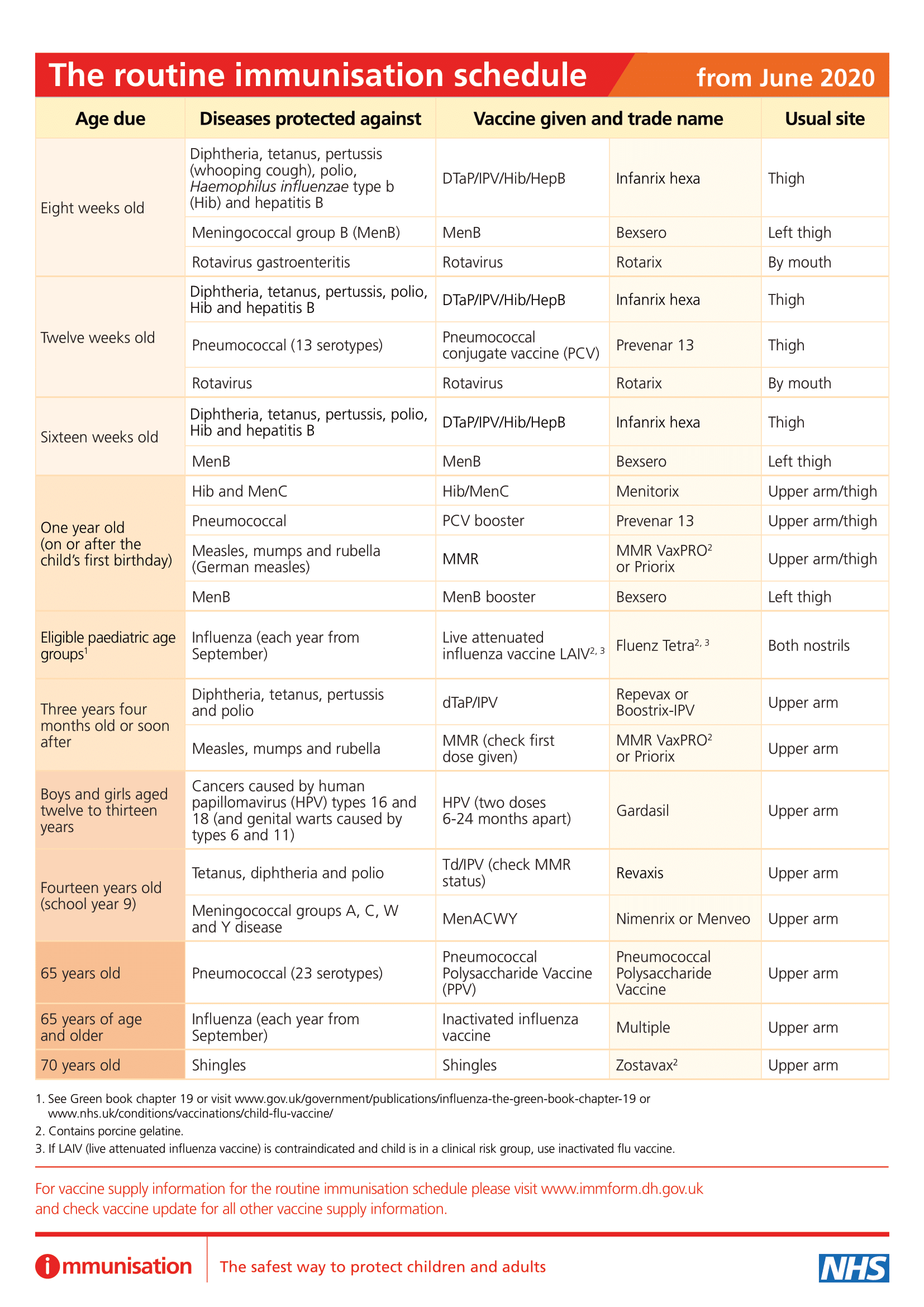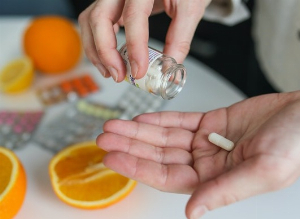World Health Day: Screening and vaccination, the keys to staying healthy!
Published 7 Apr 2021 • By Clémence Arnaud
On the occasion of World Health Day, we wanted to highlight the importance of screening and vaccination. They help prevent and reduce the frequency and/or mortality of many diseases. There are a large number of screenings that can be carried out depending on the patient and his or her issues.
How can we stay healthy thanks to screening and vaccines? What are the different screening methods? When and for which diseases are there screening and vaccination methods?
We tell you everything in our article!

Immunisation schedule
Immunisation is a means of preventing certain diseases or even eliminating them.
There are some contraindications to vaccines, such as allergy to one of the components of the vaccine or an allergic reaction to the first or previous injection of the vaccine.
Some vaccines are live attenuated vaccines, meaning that they are made up of attenuated pathogens (viruses, bacteria) and therefore create a minimal infection. They are contraindicated in immunocompromised people. Examples of such vaccines include the measles-mumps-rubella (MMR) vaccine, the BCG vaccine for tuberculosis (not given as part of the routine NHS vaccination schedule), the chickenpox vaccine (not part of the routine childhood vaccination schedule), the shingles vaccine and the yellow fever vaccine (usually only given to those planning to travel to a place where yellow fever is found).
Vaccines also help to reduce the risk of infection with human papillomavirus (HPV), which is responsible for 90% of cervical cancers.
The routine immunisation schedule recommended in the UK is as follows:

Source: GOV.UK
Vaccination recommendations for trips abroad are not included in this schedule.
Biological testing
Analyses of biological material such as blood, urine or stool are carried out more or less frequently. It can be a means of diagnostic guidance, of medical follow-up, but also of routine examination.
Blood sampling
Blood tests are a very common way of analysing one's overall health. Blood test results are composed of many parameters. Blood testing can be used routinely to detect, among other things, anaemia or deficiencies that can impact the quality of life of patients with fatigue.
It can be used to diagnose certain health conditions. For example, the level of TSH (thyroid stimulating hormone) in the blood will reveal a problem related to the thyroid gland.
Blood tests are also important for monitoring treatment. For example, the blood sugar (glycaemia) and HbA1c (glycated haemoglobin) levels allow one to see if the patient's diabetes is well controlled by the treatments.
Other tests
Excretions such as stool, sputum or semen may also be tested. Urine tests will reveal illnesses such as cystitis and will assess kidney function. Pregnancy tests and tests for certain drugs are also based on urine analysis.
Mucosal and skin samples (vaginal, throat, etc.) are part of these analyses, as are nasopharyngeal samples taken as part of COVID-19 screening.
Fluid punctures such as lumbar punctures (spinal taps) are performed under local or general anaesthesia and also fall into this category of analysis.
Screening for many different cancers
Colorectal (Bowel) cancer
Bowel cancer screening is offered every two years to men and women aged 60 to 74. It consists in testing for blood in the stool by means of an immunological test.
In August 2018, ministers agreed that in the future, bowel cancer screening in England will start at the age of 50. The NHS is starting to reduce the age range for bowel cancer screening from April 2021.
>>> You can read a more detailed article on bowel cancer here: Bowel Cancer Awareness Month: Let's shine a light on colorectal cancer <<<
Breast cancer
Breast cancer is the most common cancer in the UK and is the fourth most common cause of cancer-related death.
Regular breast exams, especially breast self-exams are recommended to women over 25 years of age. Breast cancer screening is offered every three years to women aged 50 to 71 in the UK.
This type of screening uses an X-ray (mammogram) that can spot cancers when they're too small to see or feel. A mammogram may be followed up by an ultrasound scan. The results of the mammogram will be analysed by a second radiologist as part of the screening.
Women who are at a higher risk of developing breast cancer and/or have a family history of breast cancer may be eligible for screening before the age of 50 and may be offered further assessment or follow-up.
Skin cancer
To limit the risk of developing melanoma, dermatological monitoring is recommended. When checking one's moles, certain signs or symptoms can also alert individuals and lead them to consult with a dermatologists. The warning signs to look for can be easily remembered as ABCDE:
- A: Asymmetry - the two halves of the area may differ in shape
- B: Border - the edges of the area may be irregular or blurred, and may sometimes show notches
- C: Colour - this may be uneven, or different shades of black, brown and pink may be seen
- D: Diameter - a width larger than 6 mm in diameter is a potential sign of melanoma
- E: Evolving - if you notice changes in shape, size, colour, elevation or any other new symptoms, make sure to consult a doctor
Self-diagnosis enables melanoma to be detected in 40-47% of cases and the ABCDE symptoms have improved and facilitated self-diagnosis by patients.
>>> You can find more information about melanoma here: Melanoma: How do you know if a mole is dangerous? <<<
Cervical cancer
As mentioned earlier, a vaccine is available to reduce the risk of HPV-related cervical cancer. This vaccine is offered to all girls and boys aged 12 to 13 years as part of the NHS vaccine programme.
If you missed the vaccine in school Year 8, you can receive a "catch up" vaccine free on the NHS until your 25th birthday.
>>> Find out more about the HPV vaccine here: Human Papillomavirus (HPV) - Why get vaccinated? <<<
Regular cervical screening, or smear tests, are recommended for all women between the ages of 25 and 64 to detect precancerous lesions and early cancers.
Eye care
An ophthalmic check-up will detect various conditions that impact patients' vision and quality of life. In young children, this may involve the detection of conditions such as myopia (short-sightedness), hyperopia (long-sightedness) or astigmatism (blurred near and far vision). These examinations should be carried out regularly for patients with these conditions, but also when people experience changes in vision, fatigue or headaches that could be related to an eye problem.
More advanced tests may be performed in patients over 60 years of age, such as tests for age-related macular degeneration (AMD) or glaucoma.
>>> Take a look at our article dedicated to glaucoma here: World Glaucoma Day: Let's take a look at glaucoma <<<
For patients living with certain chronic conditions such as diabetes or hypertension or an autoimmune disease such as lupus for example, regular and adapted eye check-ups should be made.
Conclusion
Screenings are an integral part of every person's health. They help to reduce the risk of developing certain illnesses or of a person's health deteriorating.
Not all screening methods are mentioned in the above article. The screening strategy should be adapted according to the needs and health problems of each individual.
Do not hesitate to consult a health care professional who will be able to answer all your questions about existing screening methods
Was this article helpful to you?
Share your thoughts and questions with the community in the comments below!
Take care!
Sources:
- e-cancer - Dépistage
- Vaccination info service - Vaccins vivants atténués
- e-cancer : Vaccination contre les HPV et cancers
- Vaincre le mélanomes et les autres cancers de la peau - ABCDE pour le diagnostic précoce du mélanome, une bonne règle ?
- SNOF - Une consultation d'ophtalmologie
- Hopital.fr - Examens de biologie médicale
- Bowel cancer screening - GOV.UK
- Breast Cancer statistics - Cancer Research UK
- Breast cancer screening - NHS
4 comments




 Facebook
Facebook Twitter
Twitter



